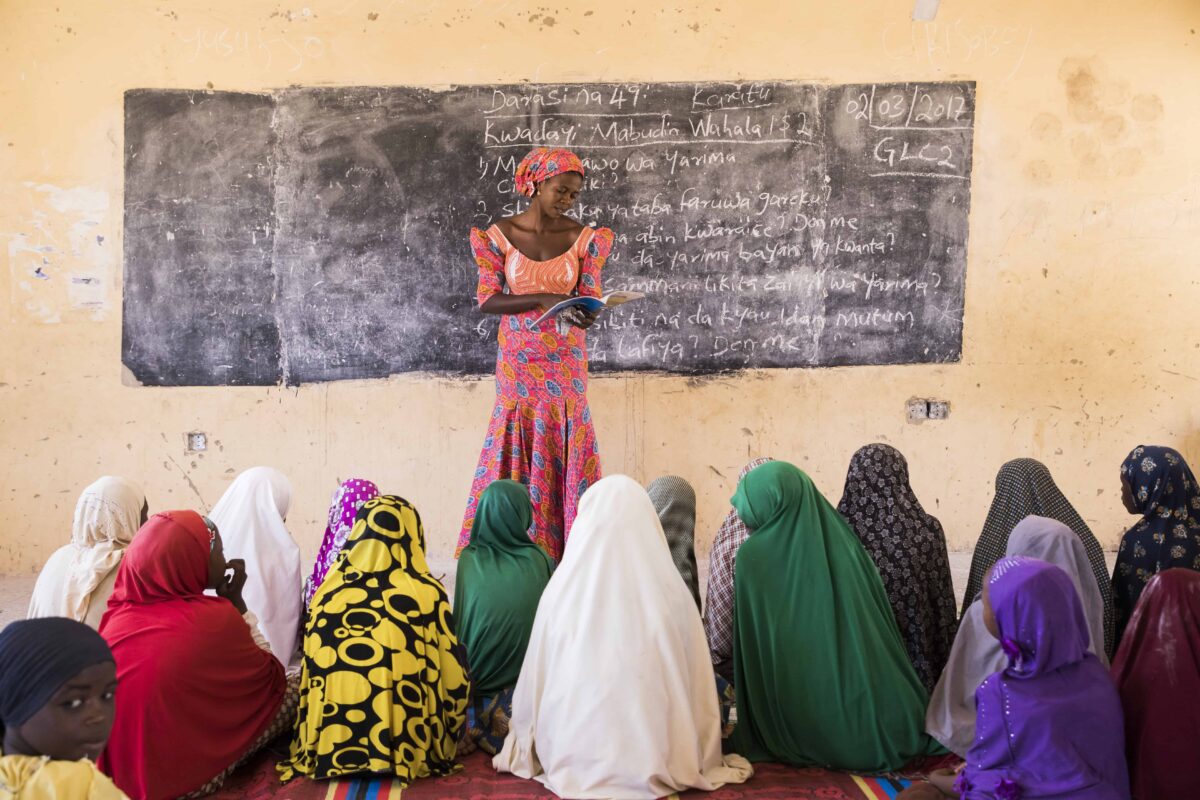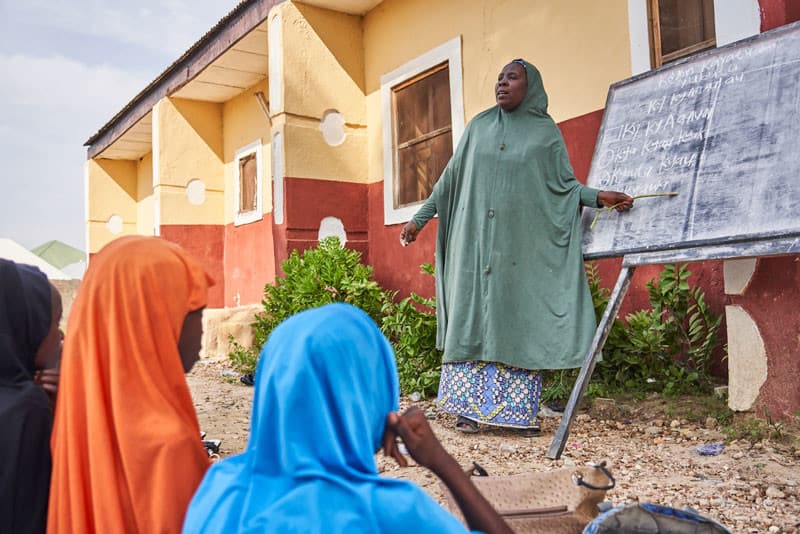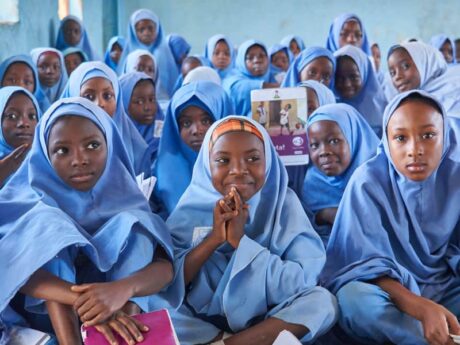Abuja, NigeriaLeaders from more than 40 local civil society organizations graduated from specialized, intensive trainings that will enable them to provide early grade and adolescent education to 36,000 children who are out of school in two Nigerian states.
Organized and managed by the USAID-supported Northern Education Initiative Plus, the participants successfully mastered the course’s topics—ranging from promoting basic reading in key communities to resource mobilization—which are required before they receive grants that will enable them to enroll these and other vulnerable children into 800 non-formal learning centers in Bauchi and Sokoto states.
John Abu Yusuf, Executive Director of African Community and Environmental Health Initiative, was one of the 82 participants in the one-week training in Bauchi to learn how to open and eventually expand the non-formal learning centers. A second, similar training session was conducted in Sokoto with 21 organizations at the end of July.
“The training has been most educative and informative,” says Yusuf, who attended the training in July. “I have found the training on leadership and also project management tools to be very useful. Personally, I wish I had this information earlier. This will help my organization plan, implement and monitor projects effectively.”
The five-year, Nigerian government-led Northern Education Initiative Plus seeks to improve access and quality of education for more than 2 million school-aged children and youth in three northern states.
Funded by the U.S. Agency for International Development, the program will enhance the states’ ability to provide quality education—especially for girls, orphans and children enrolled in nontraditional schools—and improve children’s reading skills. The Initiative will be implemented in Bauchi and Sokoto states. A third state will be announced.
In addition, the participants learned how to develop and manage organizations that are essential to the educational initiative. These include: Center Based Management Committees that support the non-formal learning centers; School Based Management Committees that support formal schools; Parents Teachers Associations; and Women Groups and Community Coalitions that advocate for school improvement plans.
Yusuf sees how community engagement in general and these organizations in particular are critical to the ongoing success of the non-formal learning centers.
“Knowing we are working with these community structures, we will definitely build their capacity to be sustainable and effective,” Yusuf says. “We want them to be able to utilize these tools so that at the close out of the project, they are able to stand on their own and have a greater impact on their communities.”
Changing lives through education
Through the Northern Education Initiative Plus, each of the 20 local government areas supported by the project in Bauchi and Sokoto states will have 30 non-formal learning centers, five youth learning centers and five adolescent girls’ centers.
Students at these centers will learn literacy, basic math and vocational skills and, at the end of the program, receive a certificate that provides the opportunity to further their education in a formal school.
Classes will be led by facilitators who are chosen by the communities and trained by the project to deliver a learner-centered curriculum.
Loveth Ibrahim, a staff member of Reproductive Health Initiative and Support Association, who participated in the training is particularly passionate about girls having access to education.
“I want to see more girls get a chance at education and that journey starts with these new skills I have now acquired,” said Ibrahim, who was joined at the training by her one-year-old daughter. “I realize that the knowledge I have acquired here will not end with me but in the community.”
The training was informed by Creative’s Organizational Capacity Assessment Tool—an interactive capacity self-assessment tool that assists organizations in identifying strengths and weaknesses and developing improvement plans to build capacity.



